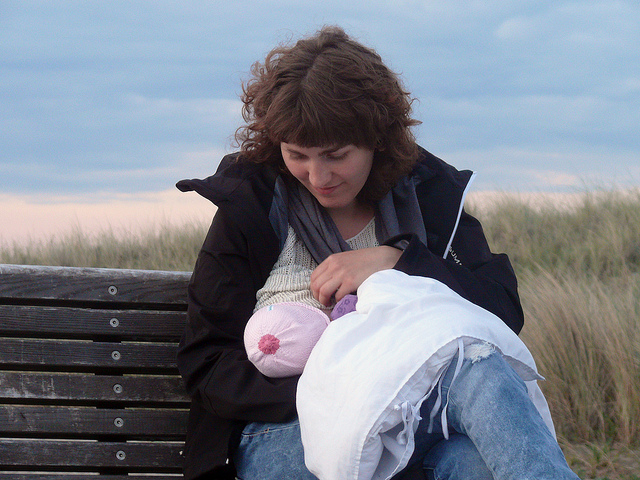A new research presented at the Annual Scientific Meeting of the American College of Allergy, Asthma and Immunology (AAAAI) contested the assumption that breastfeeding may lower allergy risk in babies. The new research does not deny the importance of breastfeeding infants though, as the recommendation for pregnant women to breastfeeding newborns for at least one year still holds.

Breast milk is still superior to any commercially available formula, as it provides the exact amount of nutrients required by baby needs to growth and develop healthy, while reducing the risk for overweight and obesity. It also helps protect the baby from ear, chest and stomach infection as well as preventing gastrointestinal disorders such as constipation and diarrhea. However, the general scientific consensus is that breast lactation may diminish the risk of all antibody-mediated hypersensitivity reaction even later in life. Exclusive breastfeeding for the first of year of life is usually recommended to reduce the risk of allergic rhinitis, eczema, asthma and other atopic diseases in high-risk babies.
What is an allergic reaction?
Allergic reactions such as asthma and rhinitis as well as most food allergies, are usually mediated by the action of antibodies of the immunoglobulin E (IgE) type. These immunoglobulins do actually protect our body from foreign organisms such as parasitic infestations, actually stimulating a prompt immune system response. All the reactions associated with allergies such as mucus secretion, coughing, sneezing and diarrhea aim at expelling the allergenic substance from the body. Cow’s milk contains several proteins such as lactoglobulin and casein that may act as allergens, triggering a significant rise in IgE levels that not only do induce an immediate allergic reaction, but may also sensitize the baby as well, causing future allergies.
Breastfeeding does not just improve infant’s health by just avoiding bovine milk’s allergic potential. Breast milk is rich in IgA, another immunoglobulin that usually covers the intestine preventing several foreign proteins from coming into contact with the immune system. Newborns lack this kind of protective layer, and if they come in contact with just a single allergen, they will be sensitized to it for the rest of their lives. IgA also help protecting babies against bacterial, viral and other dangerous exposures.
A new study shows that breastfeeding does not protect against allergic reactions
The new research from the American College of Allergy, Asthma and Immunology (ACAAI) presented at the AAAAI, tried to find an association between allergic IgE sensitization and breastfeeding. The study led by Dr. Quindelyn Cook, examined 200 patients between 2009-2013 aged 4-18 years, who were diagnosed with rhinitis (hay fever), to find if there was a difference between those who were breastfed compared to those who were bottle fed. Results of the retrospective review study showed no difference between the two groups defined by the number of patients with a positive skin prick test to an environmental allergen. Similarly, no significant differences were found among the rates of asthma, atopic dermatitis (eczema) and food allergies between the two groups.
The findings actually contradict previous research such as an important study led by Unicef, that claimed that breastfed babies had a lower risk of five different allergies. However even the study leading author, the ACAAI allergologist Dr. Christina Ciaccio, keeps enforcing the importance of natural breastfeeding to new mothers, as well as the need for further larger studies to confirm their findings and their applicability to the general population.
Article by Dr. Claudio Butticè, PharmD.
Be the first to comment on "Breastfeeding to prevent allergies – Truth or Myth?"